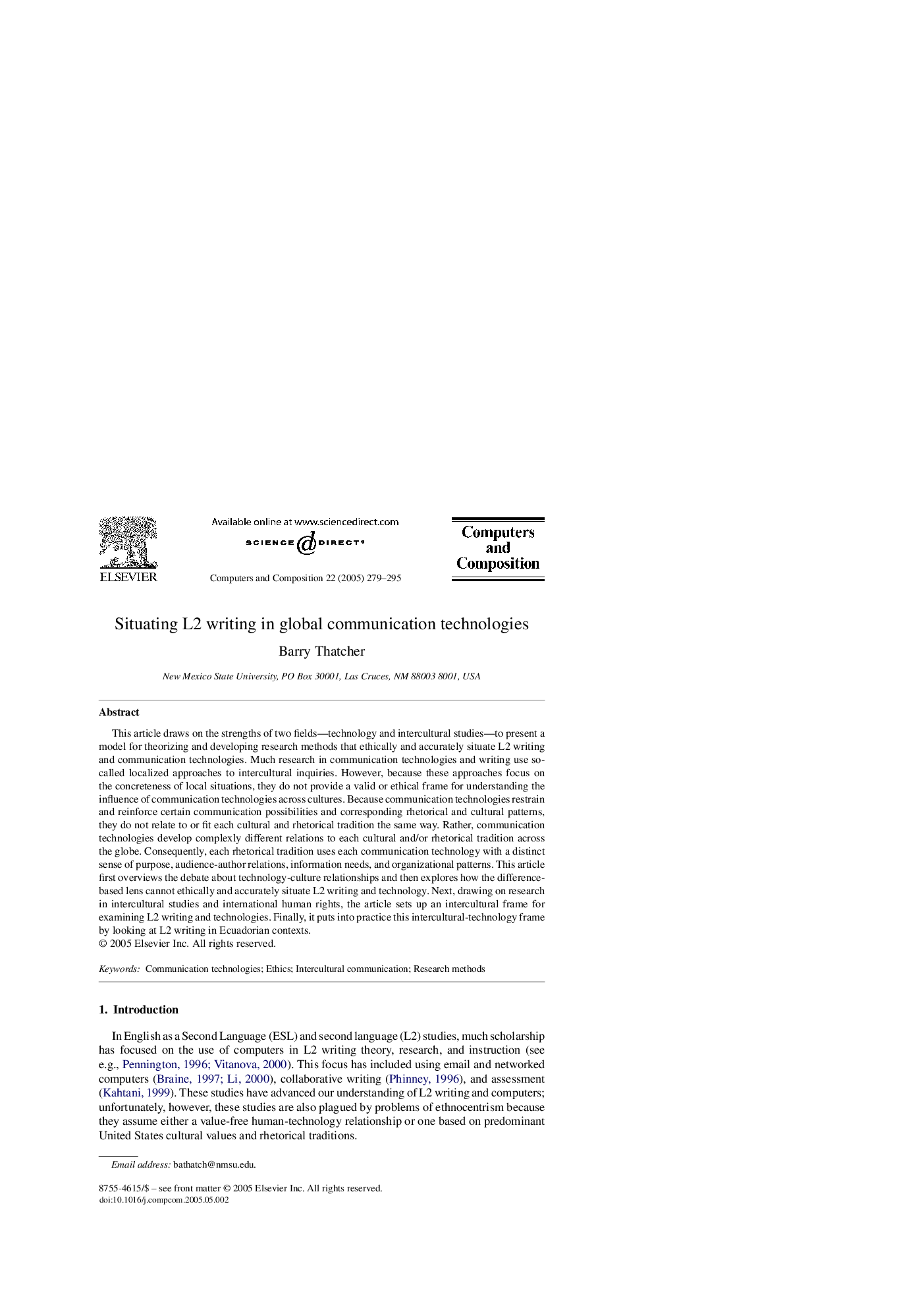| Article ID | Journal | Published Year | Pages | File Type |
|---|---|---|---|---|
| 10312061 | Computers and Composition | 2005 | 17 Pages |
Abstract
This article draws on the strengths of two fields-technology and intercultural studies-to present a model for theorizing and developing research methods that ethically and accurately situate L2 writing and communication technologies. Much research in communication technologies and writing use so-called localized approaches to intercultural inquiries. However, because these approaches focus on the concreteness of local situations, they do not provide a valid or ethical frame for understanding the influence of communication technologies across cultures. Because communication technologies restrain and reinforce certain communication possibilities and corresponding rhetorical and cultural patterns, they do not relate to or fit each cultural and rhetorical tradition the same way. Rather, communication technologies develop complexly different relations to each cultural and/or rhetorical tradition across the globe. Consequently, each rhetorical tradition uses each communication technology with a distinct sense of purpose, audience-author relations, information needs, and organizational patterns. This article first overviews the debate about technology-culture relationships and then explores how the difference-based lens cannot ethically and accurately situate L2 writing and technology. Next, drawing on research in intercultural studies and international human rights, the article sets up an intercultural frame for examining L2 writing and technologies. Finally, it puts into practice this intercultural-technology frame by looking at L2 writing in Ecuadorian contexts.
Related Topics
Social Sciences and Humanities
Arts and Humanities
Language and Linguistics
Authors
Barry Thatcher,
